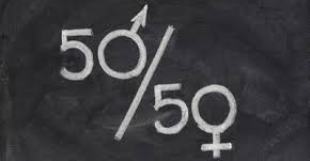Source: Star Africa
The Project Director of the United Nations Development Programme (UNDP), Dr Mourtada Deme, has stressed the need to drum up support for gender equality issues in the constitutional review process in Nigeria order to ensure favourable consideration during the debates by the Houses of Assembly in the states.
 Speaking at a one-day media roundtable on post-public hearing, lobbying and advocacy activities for the promotion of gender equality issues on the ongoing review of the Nigerian constitution, organized by Gender and Development Action (GADA) on Thursday in Asaba, the capital of Delta State, Deme urged media practitioners to support the cause by adding their voice and making commitments as stakeholders for the success of the project.
Speaking at a one-day media roundtable on post-public hearing, lobbying and advocacy activities for the promotion of gender equality issues on the ongoing review of the Nigerian constitution, organized by Gender and Development Action (GADA) on Thursday in Asaba, the capital of Delta State, Deme urged media practitioners to support the cause by adding their voice and making commitments as stakeholders for the success of the project.
Deme disclosed that the Democratic Governance for Development (DGD) project was a joint donor funded initiative managed by the UNDP and that the primary objective of the project was to support democracy in Nigeria.
He said that the media roundtable fell under the components which seek to support ongoing legal reform to promote affirmative action and women empowerment as candidates, voters and election officials.
"The constitution review process is ongoing, the presentation of the report of the senate committee on constitution review and public presentation of the report of the house of representative public session on constitution review have taken place.
"A review of the reports shows that most of the things advocated for by women have not been taken on board by both the House of Representatives and the Senate.
"Specifically on issue of affirmative action and a cursory look at the current proposal for review of the constitution reveals that there is not affirmative action content in the proposals being discussed," he said.
He explained that phase one of the project, which commenced in 2010 and ended in 2011 was geared towards improving the conduct of the 2011 general elections.
Deme said that based on the lessons learned and recommendations of the project strategic review, the project was later formulated in 2012 for the phase two.
Phase two, which started in April and May 2012 consists of four components, which include promoting credible, transparent and sustainable electoral processes and enhancing participation by women, youth and other marginalized groups.
Earlier, in her address of welcome, the Executive Director of GAZA, Ms Ada Agina-Ude, noted that there are still opportunities for the ordinary Nigerians, especially women to ensure that the amendment take care of their interests.
A communiqué issued at the end of the round table called on all media practitioners and media houses generally to be at the forefront of the campaign to address issues of Gender Equality in the ongoing constitutional review process;
It also called on all states and federal lawmaker, especially female lawmakers to lead the advocacy on gender equality.
The communiqué appealed to women associations, organisations and female students to be actively involved in this gender advocacy while traditional rulers, community and youth leaders as well as faith-based organisations were urged to prevail on their representative to support Gender Equality provisions in the ongoing constitutional review.
